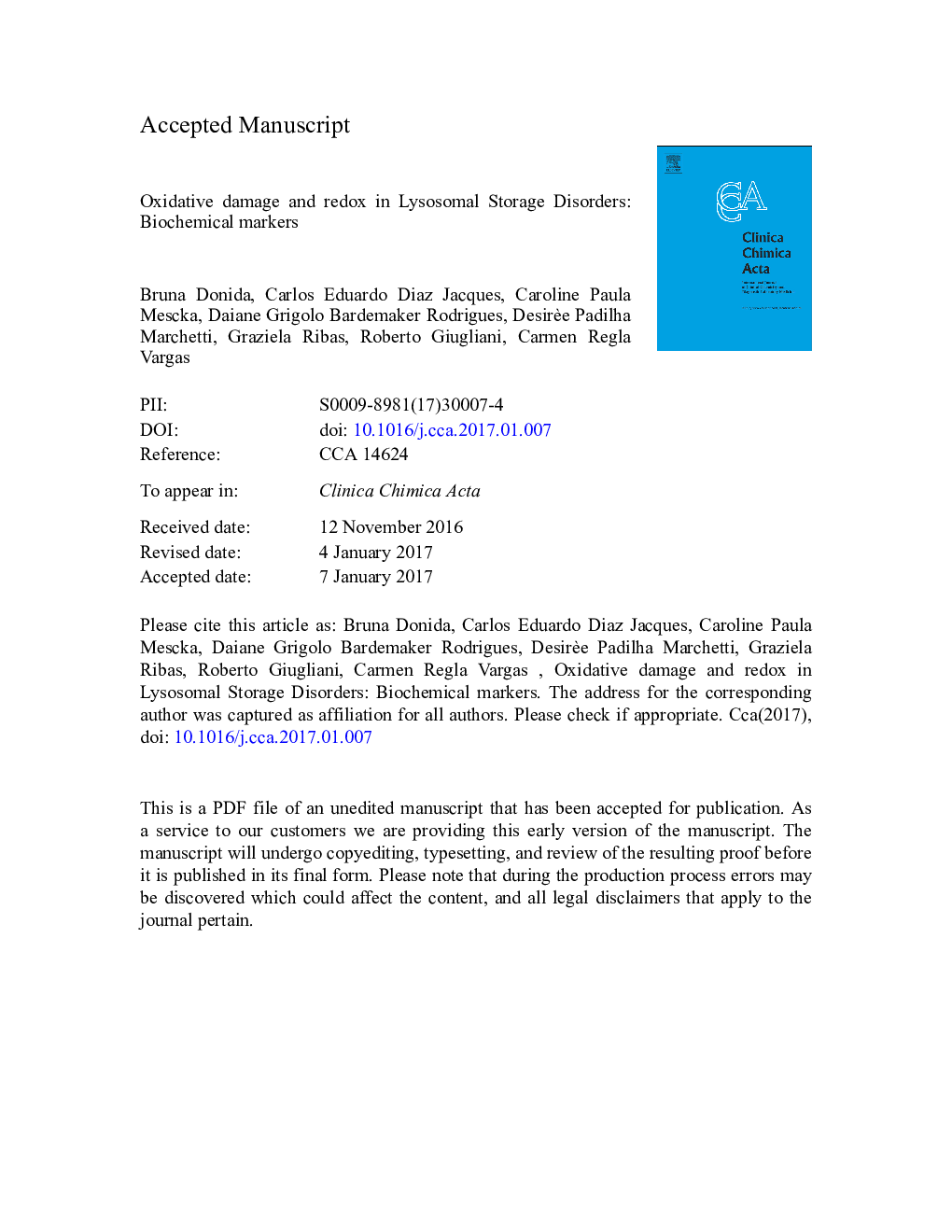| Article ID | Journal | Published Year | Pages | File Type |
|---|---|---|---|---|
| 5509729 | Clinica Chimica Acta | 2017 | 36 Pages |
Abstract
Lysosomal Storage Disorders (LSD) comprise a heterogeneous group of >Â 50 genetic disorders caused by mutations in genes that encode lysosomal enzymes, transport proteins or other gene products essential for a functional lysosomal system. As a result, abnormal accumulation of substrates within the lysosome leads to a progressive cellular impairment and dysfunction of numerous organs and systems. The exact mechanisms underlying the pathophysiology of LSD remain obscure. Previous studies proposed a relationship between oxidative stress and the pathogenesis of several inborn errors of metabolism, including LSD. Considering these points, in this paper it was reviewed oxidative stress and emerging antioxidant therapy in LSD, emphasizing studies with biological samples from patients affected by this group of conditions. These studies allow presuming that metabolites accumulated in LSD cause an increase of lysosomes' number and size, which may induce excessive production of reactive species and/or deplete the tissue antioxidant capacity, leading to damage in biomolecules. In vitro and in vivo evidence showed that cell oxidative process occurs in LSD and probably contributes to the pathophysiology of these disorders. In this context, it is possible to suggest that, in the future, antioxidants could come to be used as adjuvant therapy for LSD patients.
Keywords
JNCLIL-10GAG8-OHdGDCFH-DAiNOSCysGBAHcyGSSGFPGHSCTCoQ10GPXGSHCAT7-KCGb3Endonuclease III4-hydroxynonenal4-HNE7-Ketocholesterol8-hydroxy-2′-deoxyguanosineCa2 +Hydrogen peroxideOxidative damageEndo IIIenzyme replacement therapylysosomal storage disordersIEMInterleukin-10Batten diseaseFabry diseaseGaucher diseaseOxidative stressInborn errors of metabolismCNSAgeKeratan sulfateDermatan sulfateCysteinecentral nervous systemDamage indexINCLCoppernitric oxide synthaseERThomocysteineHeparan sulfateH2O2advanced glycation end productHematopoietic stem cell transplantationCatalasereduced glutathionehigh performance liquid chromatographyHPLC calciumChondroitin 6-sulfateCoenzyme Q10oxidized glutathioneglutathione reductaseglutathione peroxidaseglobotriaosylceramideglucocerebrosidaseGlycosaminoglycansReactive species
Related Topics
Life Sciences
Biochemistry, Genetics and Molecular Biology
Biochemistry
Authors
Bruna Donida, Carlos Eduardo Diaz Jacques, Caroline Paula Mescka, Daiane Grigolo Bardemaker Rodrigues, Desirèe Padilha Marchetti, Graziela Ribas, Roberto Giugliani, Carmen Regla Vargas,
